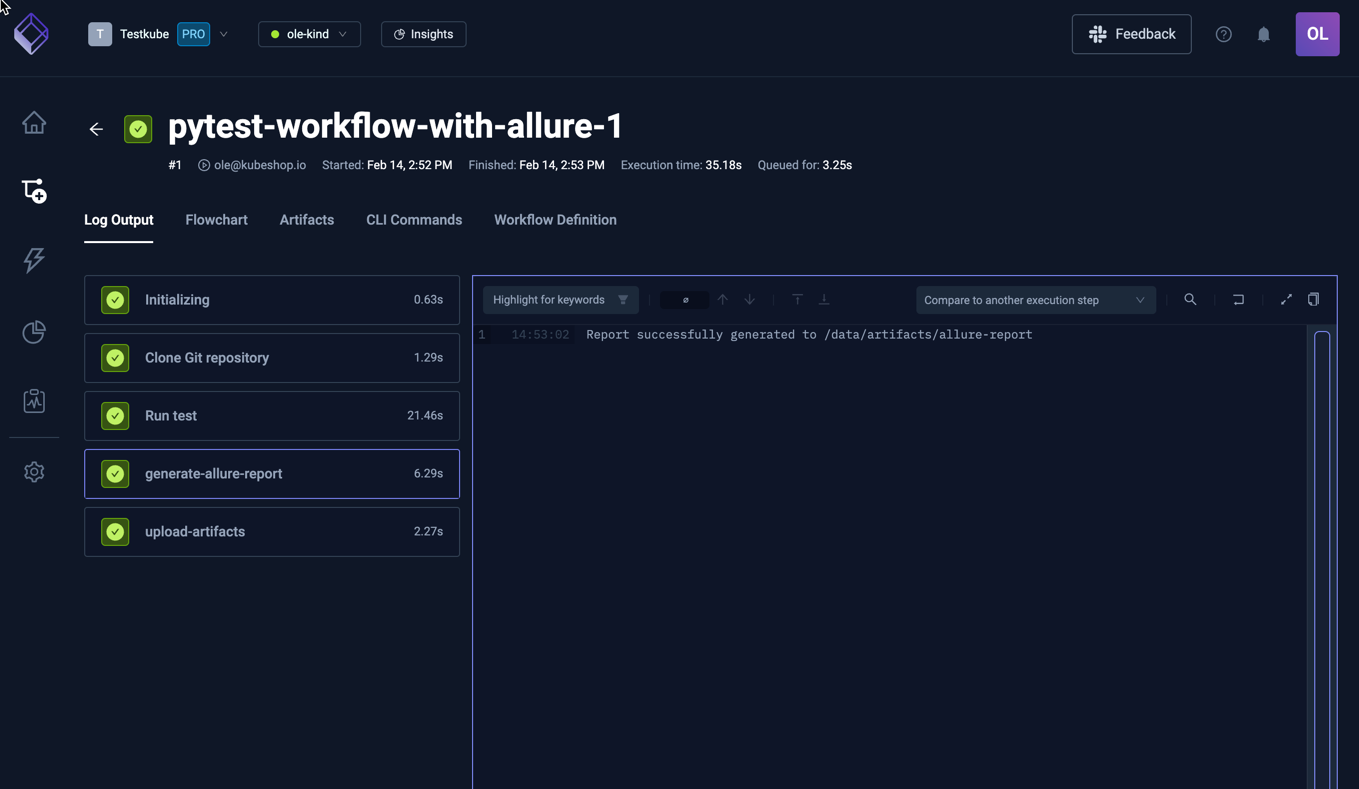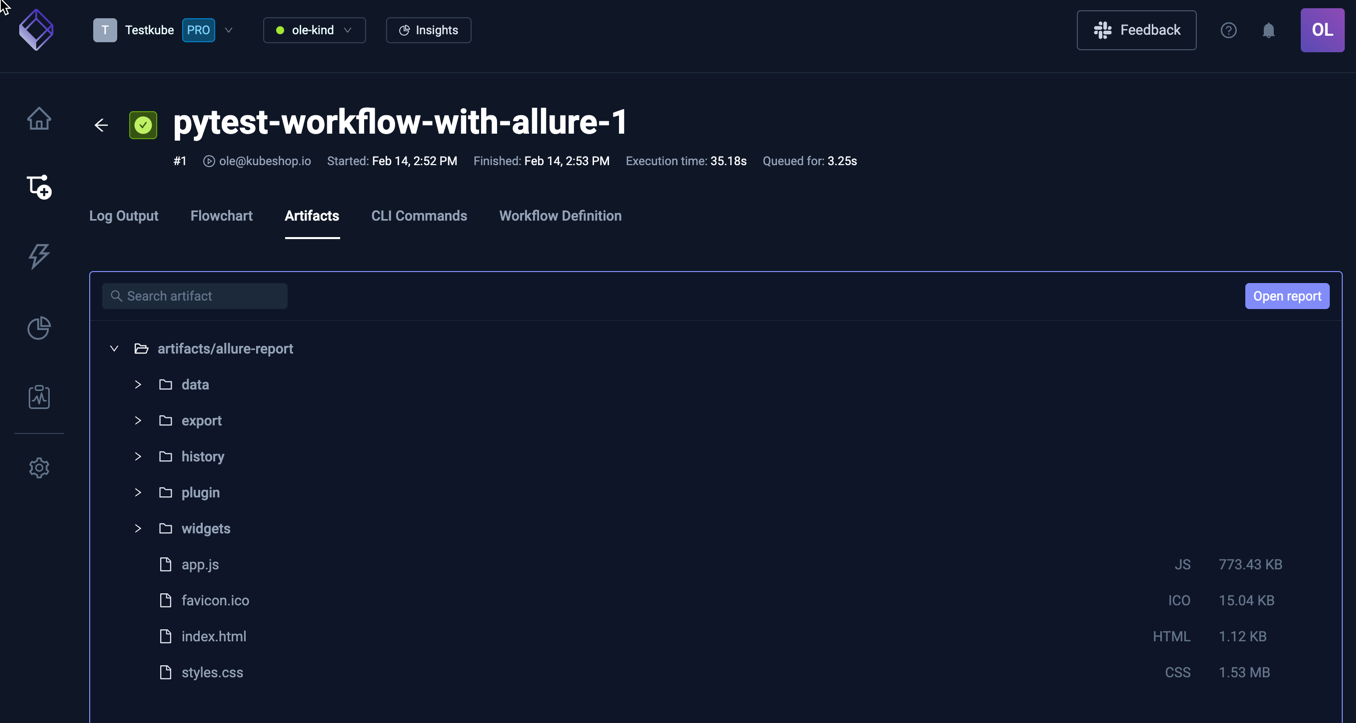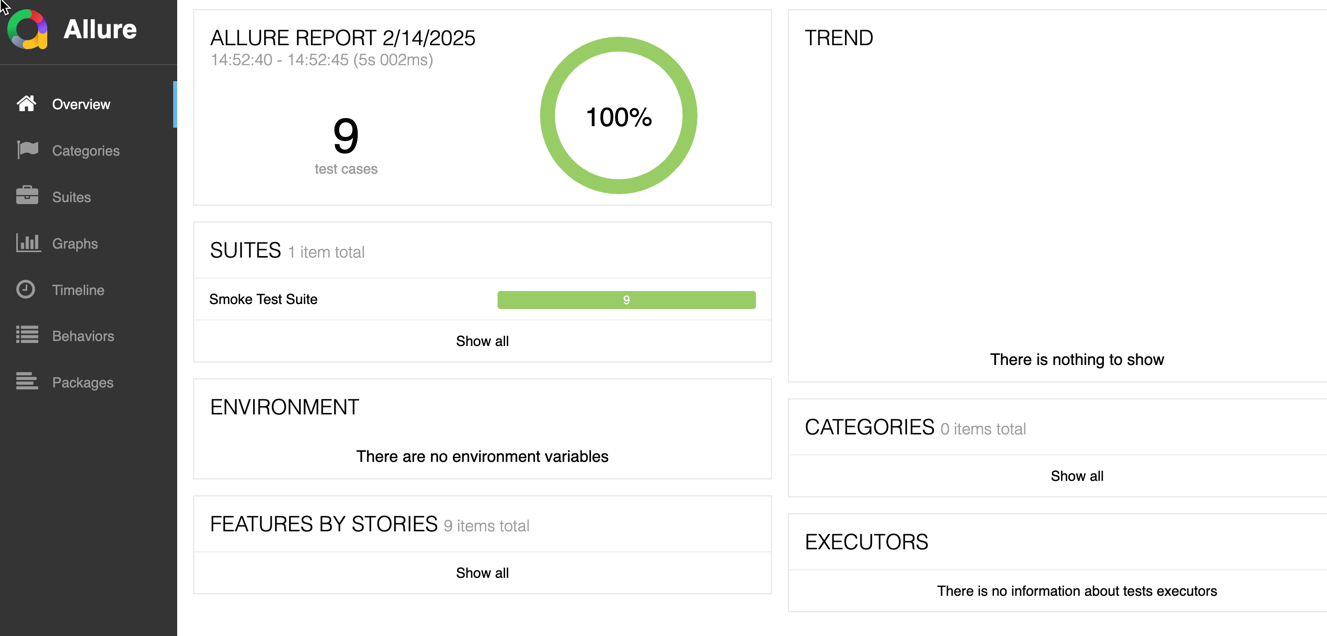Using Allure Reports in your Workflows
Allure Reports is a popular open-source tool for generating reports for individual test results, and can be easily added to any Test Workflow in Testkube to generate corresponding reports for your Tests Executions.
PyTest Example
The below Workflow first runs tests with Pytest and then invokes Allure to generate corresponding reports.
kind: TestWorkflow
apiVersion: testworkflows.testkube.io/v1
metadata:
name: pytest-workflow-with-allure
namespace: testkube
labels:
docs: examples
spec:
content:
git:
uri: https://github.com/kubeshop/testkube
revision: main
paths:
- test/pytest/pytest-project
container:
workingDir: /data/repo/test/pytest/pytest-project
image: python:3.12.6-alpine3.20
resources:
requests:
cpu: 256m
memory: 256Mi
steps:
- name: Run test
shell: |
pip install -r requirements.txt
mkdir /data/artifacts
pytest tests/success --junit-xml=/data/artifacts/pytest-report.xml
- name: generate-allure-report
run:
image: tobix/allure-cli:latest
env:
- name: ALLURE_NO_ANALYTICS
value: "1"
args:
- generate
- /data/artifacts
- -o
- /data/artifacts/allure-report
- --clean
- name: upload-artifacts
condition: always
artifacts:
paths:
- /data/artifacts/allure-report/**
tip
Add condition: failed to the generate-allure-report step if you only want to generate reports for failed tests.
Running this Workflow results in the following Log Output:

Selecting the Artifacts tab shows the uploaded Allure report files:

And selecting the "Open Report" button (or the index.html file in the listing) opens the report:
